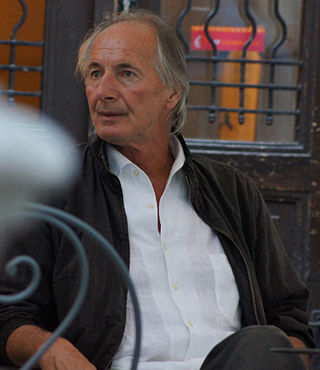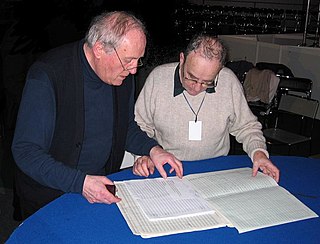
Slovenia, officially the Republic of Slovenia, is a country in southern Central Europe. Slovenia is bordered by Italy to the west, Austria to the north, Hungary to the northeast, Croatia to the south and southeast, and a short coastline within the Adriatic Sea to the southwest. Slovenia is mostly mountainous and forested, covers 20,271 square kilometres (7,827 sq mi), and has a population of approximately 2.1 million. Slovene, a South Slavic language, is the official language. Slovenia has a predominantly temperate continental climate, with the exception of the Slovene Littoral and the Julian Alps. A sub-mediterranean climate reaches to the northern extensions of the Dinaric Alps that traverse the country in a northwest–southeast direction. The Julian Alps in the northwest have an alpine climate. Toward the northeastern Pannonian Basin, a continental climate is more pronounced. Ljubljana, the capital and largest city of Slovenia, is geographically situated near the centre of the country.

Ljubljana is the capital and largest city of Slovenia, located along a trade route between the northern Adriatic Sea and the Danube region, north of the country's largest marsh, inhabited since prehistoric times. It is the country's cultural, educational, economic, political and administrative center.
In the minds of many foreigners, Slovenian folk music means a form of polka that is still popular today, especially among expatriates and their descendants. However, there are many styles of Slovenian folk music beyond polka and waltz. Kolo, lender, štajeriš, mafrine and šaltin are a few of the traditional music styles and dances.
Punk rock in Yugoslavia was the punk subculture of the former Socialist Federal Republic of Yugoslavia. The most developed scenes across the federation existed in the Socialist Republic of Slovenia, the Adriatic coast of the Socialist Republic of Croatia, the Socialist Autonomous Province of Vojvodina and Belgrade, the capital of both Yugoslavia and the Socialist Republic of Serbia. Some notable acts included: Pankrti, Paraf, Pekinška patka, KUD Idijoti, Niet, Patareni and KBO!.

The music of Yugoslavia refers to music created during the existence of Yugoslavia, spanning the period between 1918 and 1992. The most significant music scene developed in the later period of the Socialist Federal Republic of Yugoslavia, and includes internationally acclaimed artists such as: the alternative music acts Laibach and Disciplina Kičme which appeared on MTV; classical music artists such as Ivo Pogorelić and Stefan Milenković; folk artists such as the Roma music performer Esma Redžepova; the musicians of the YU Rock Misija contribution to Bob Geldof's Band Aid; the Eurovision Song Contest performers such as the 1989 winners Riva and Tereza Kesovija, who represented Monaco at the Eurovision Song Contest 1966 and her own country in 1972, and plenty of others.
Popular music in Yugoslavia includes the pop and rock music of the former SFR Yugoslavia, including all their genres and subgenres. The scene included the constituent republics: SR Slovenia, SR Croatia, SR Bosnia and Herzegovina, SR Montenegro, SR Macedonia and SR Serbia and its subunits: SAP Vojvodina and SAP Kosovo. The pop and rock scene was a part of the general Music of Yugoslavia, which also included folk, classical music, jazz etc. Within Yugoslavia and internationally, the phrases ex-YU or ex-Yugoslav Pop and Rock both formally and informally generally to the SFRY period, though in some cases also to its successor the FR Yugoslavia including Serbia and Montenegro which existed until 2006.

Slovene culture is the culture of the Slovenes, a south Slavic ethnic group. It is incredibly diverse for the country's small size, spanning the southern portion of Central Europe, being the melting pot of Slavic, Germanic and Romance cultures while encompassing parts of the Eastern Alps, the Pannonian Basin, the Balkan Peninsula and the Mediterranean.

The Ljubljana Summer Festival is a festival held between July and August in Ljubljana, the capital of Slovenia. First organized in 1953 it is the oldest festival in the country.
Novi Rock was a widely acclaimed rock festival in Ljubljana, Slovenia, which brought the latest currents in popular music to Slovene and Yugoslav audiences between 1981 and 2000. Igor Bašin wrote the book about the festival in 2006. The book takes an analytical look at the festival in the wider social context of the final decade of Yugoslavia and the first decade of independent Slovenia.

Majda Sepe was one of the most successful and well recognized Slovenian singers in the time of Yugoslavia and was one of the most renowned singers of the Golden Age of Slovenian folk music.

Založba kaset in plošč RTV Ljubljana or Založba kaset in plošč Radiotelevizije Ljubljana, was a major record label in the former SFR Yugoslavia, based Ljubljana, Socialist Republic of Slovenia. In 1990, at the start of the breakup of Yugoslavia, the name of the company was changed to Založba kaset in plošč RTV Slovenija. It was and still remains a leading publishing firm in Slovenia.
Igor Vidmar is a prominent Slovenian and former Yugoslav journalist, rock music promoter and manager, music producer and political activist.

The Križanke Outdoor Theatre is a theatre in Ljubljana, Slovenia, used for summer festivals set up inside the courtyard of the former Monastery of the Holy Cross. It is located at French Revolution Square no. 1.

September was a Slovenian and Yugoslav rock band formed in Ljubljana in 1975. They were one of the most prominent acts of the 1970s Yugoslav rock scene.

Janez Bončina, nicknamed Benč is a Slovenian composer, guitarist and singer. He is one of the leading authors and performers of Slovenian and Yugoslavian rock music. In the middle of the 1960s, Bončina with his friend Tomaž Domicelj from the group Helioni, showed his talent for music. Later with the group "Mladi Levi" he created projects which started the Slovenian pop rock scene.
BOOM Festival was a rock music festival held annually throughout SFR Yugoslavia between 1971 and 1978. The festival was held for the first time in 1971 in Maribor and for the last time in 1978 in Novi Sad. The festival featured numerous prominent acts of the Yugoslav rock scene, and five various artists live albums were recorded on various editions of the festival. Most of the editions of the festival were sponsored by the League of Socialist Youth of Yugoslavia.
Druga godba is a world music festival organized yearly in Ljubljana, Slovenia.
Albin Jarić (1953–2023), better known by his stage name Jimi Rasta, is a Bosnian–Slovenian musician, painter, and mineralogist.

Mojmir "Mojzes" Sepe was a Slovenian composer, conductor, arranger and trumpeter.

Jutro was a Yugoslav rock band formed in Ljubljana in 1970. Initially performing boogie rock and later turning towards jazz rock, Jutro was a prominent act on the Yugoslav rock scene in the 1970s.











